Form Ct-1040 Nr/py - Connecticut Nonresident And Part-Year Resident Income Tax Return And Instructions - 2011 Page 26
ADVERTISEMENT
How to Calculate the Credit
income is $105,000. On Form CT-1040NR/PY, Schedule
You must first complete your income tax return(s) in the
CT-1040AW, Column A, Laura reported the following:
qualifying jurisdiction(s). Then, complete the Schedule 2
$76,000 in wages, $4,000 in interest, and $25,000 from
Worksheet on Page 25 to determine the amount to enter on
dividends received November 2. Laura enters on Schedule
Schedule 2, Line 55.
2 Worksheet, Column I, the amounts she entered on Form
CT-1040NR/PY, Schedule CT-1040AW, Column B: Line 1,
The allowable credit must be separately computed for each
$38,000; Line 2, $2,000; and Line 3, $25,000. In Column II,
qualifying jurisdiction. Use separate columns for each qualifying
she enters: Line 1,$38,000. Credit is allowed for the New
jurisdiction for which you are claiming a credit. Attach a copy
York tax paid on her $38,000 of wage income because it is
of all income tax returns fi led with qualifying jurisdictions
derived from or connected to New York during the Connecticut
to your Connecticut income tax return or the credit will be
residency portion of her taxable year.
disallowed.
Example 2: Ann and Joe are part-year residents who fi le a joint
Schedule 2 provides two columns, A and B, to compute the credit
federal Form 1040 and Form CT-1040NR/PY. Joe’s wages
for two jurisdictions. If you need more than two columns, create
as an employee working in Rhode Island while a resident of
a worksheet identical to Schedule 2 and attach it to the back of
Connecticut are $20,000 and Ann’s wages as an employee
your Form CT-1040NR/PY.
working in Connecticut while a resident of Connecticut
If you are claiming credit for income taxes paid to another state
are $25,000. Their combined wages while nonresidents of
and to one of its political subdivisions, follow these rules to
Connecticut are $25,000. On their federal Form 1040, Line 7,
(and on Line 1, Column A, of their Schedule CT-1040AW),
determine your credit:
Ann and Joe entered $70,000. Ann and Joe enter on the
A. If the same amount of income is taxed by both the city and
Schedule 2 Worksheet, $45,000 in Column I, Line 1, and
state (see the Line 61 example on Page 27):
$20,000 in Column II, Line 1. Ann and Joe also enter $20,000
1. Use only one column on Form CT-1040NR/PY,
on Form CT-1040NR/PY, Schedule 2, Line 55.
Schedule 2, to calculate your credit;
Example 3: Linda, a part-year resident, is a sole proprietor
2. Enter the same income taxed by both city and state in
of a business conducted at two locations, one in Connecticut
that column on Schedule 2; and
and one in Massachusetts. All of Linda’s income was earned
3. Combine the amounts of tax paid to the city and the state
while she was a Connecticut resident. On Linda’s federal Form
and enter the total on Line 59 of that column.
1040, Line 12, she entered $100,000. Of the $150,000 of gross
B. If the amounts of income taxed by both the city and state
income reported on federal Form 1040, Schedule C, $90,000
are not the same:
is derived from the Massachusetts location. Of the $50,000
of expenses reported on her Schedule C, $35,000 is derived
1. Use two columns on Form CT-1040NR/PY, Schedule 2;
from the Massachusetts location. When completing Schedule
2. Include only the same income taxed by both jurisdictions
2 Worksheet, Linda enters $100,000 in Column I, Line 5, and
in the fi rst column; and
$55,000 ($90,000 - $35,000), in Column II, Line 5. Linda also
3. Include the excess income taxed by only one of the
enters $55,000 on Form CT-1040NR/PY, Schedule 2, Line 55.
jurisdictions in the next column.
Schedule 2 - Worksheet Instructions
Schedule 2 - Line Instructions
Complete the Schedule 2 Worksheet on Page 25 to determine
Line 53: Connecticut Adjusted Gross Income
the portion of your Connecticut adjusted gross income during
During the Residency Portion of the Taxable Year
the residency portion of your taxable year derived from a
The amount from Schedule CT-1040AW, Part-Year Resident
qualifying jurisdiction. Enter in Column I the items of income
Income Allocation, Line 30, Column B, is entered on Line 53
you earned during the residency portion of your taxable year and
with the following exceptions:
entered on Schedule CT-1040AW, Column B. For each line in
1. Add to the amount on Line 30, Column B, any net loss during
Column II, enter the items of income from Column I that meet
the residency portion of your taxable year derived from or
all of the following conditions:
connected with sources in a qualifying jurisdiction(s) where
• The income was earned during the residency portion of your
you were subject to income taxation (whether or not income
taxable year;
tax was actually paid to the jurisdiction(s)).
• The income is derived from or connected with sources within
2. For the residency portion of your taxable year, add back
a qualifying jurisdiction;
any item of loss or deduction and subtract any item
• The income is reported on an income tax return fi led with
of income or gain included in Schedule CT-1040AW,
that qualifying jurisdiction and subject to income tax in the
Column B, as an item of special accrual.
jurisdiction; and
Example: Sam’s Connecticut adjusted gross income for
• You have paid income tax on the income to that qualifying
the residency portion of his taxable year is $60,000 which
jurisdiction.
includes income of $15,000 from business activities conducted
in Massachusetts and a net loss of $20,000 from a business
Example 1: Laura, a single taxpayer, was employed in the
conducted in Rhode Island. He must add the $20,000 net loss
State of New York during the entire taxable year and moved
to the $60,000 and enter $80,000 on Line 53.
into Connecticut on July 1. Her Connecticut adjusted gross
Page 26
ADVERTISEMENT
0 votes
Related Articles
Related forms
Related Categories
Parent category: Financial
 1
1 2
2 3
3 4
4 5
5 6
6 7
7 8
8 9
9 10
10 11
11 12
12 13
13 14
14 15
15 16
16 17
17 18
18 19
19 20
20 21
21 22
22 23
23 24
24 25
25 26
26 27
27 28
28 29
29 30
30 31
31 32
32 33
33 34
34 35
35 36
36 37
37 38
38 39
39 40
40 41
41 42
42 43
43 44
44 45
45 46
46 47
47 48
48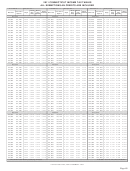 49
49 50
50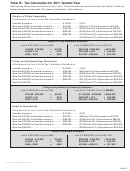 51
51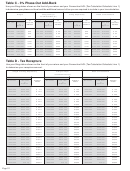 52
52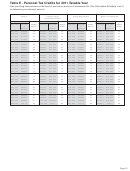 53
53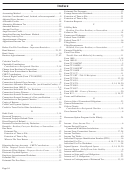 54
54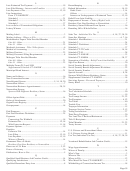 55
55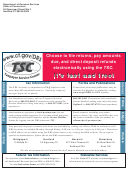 56
56








